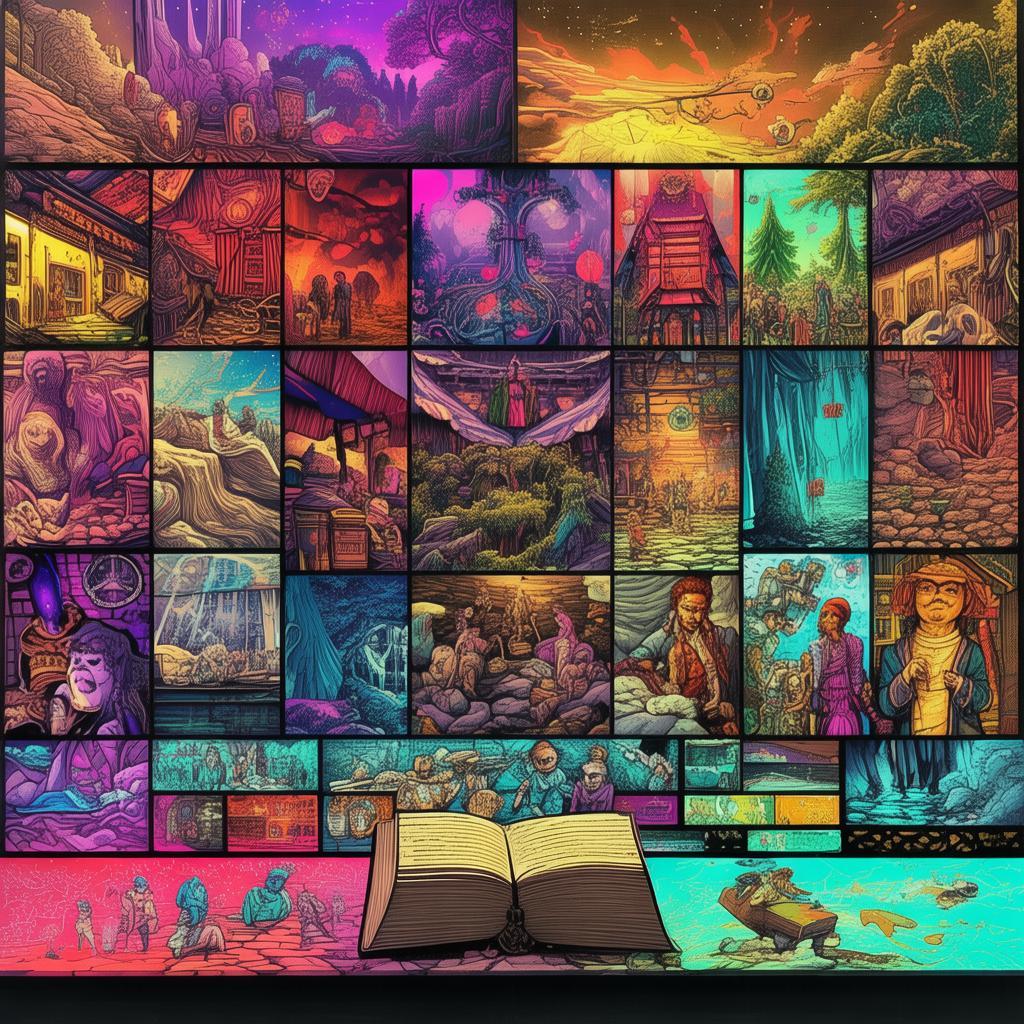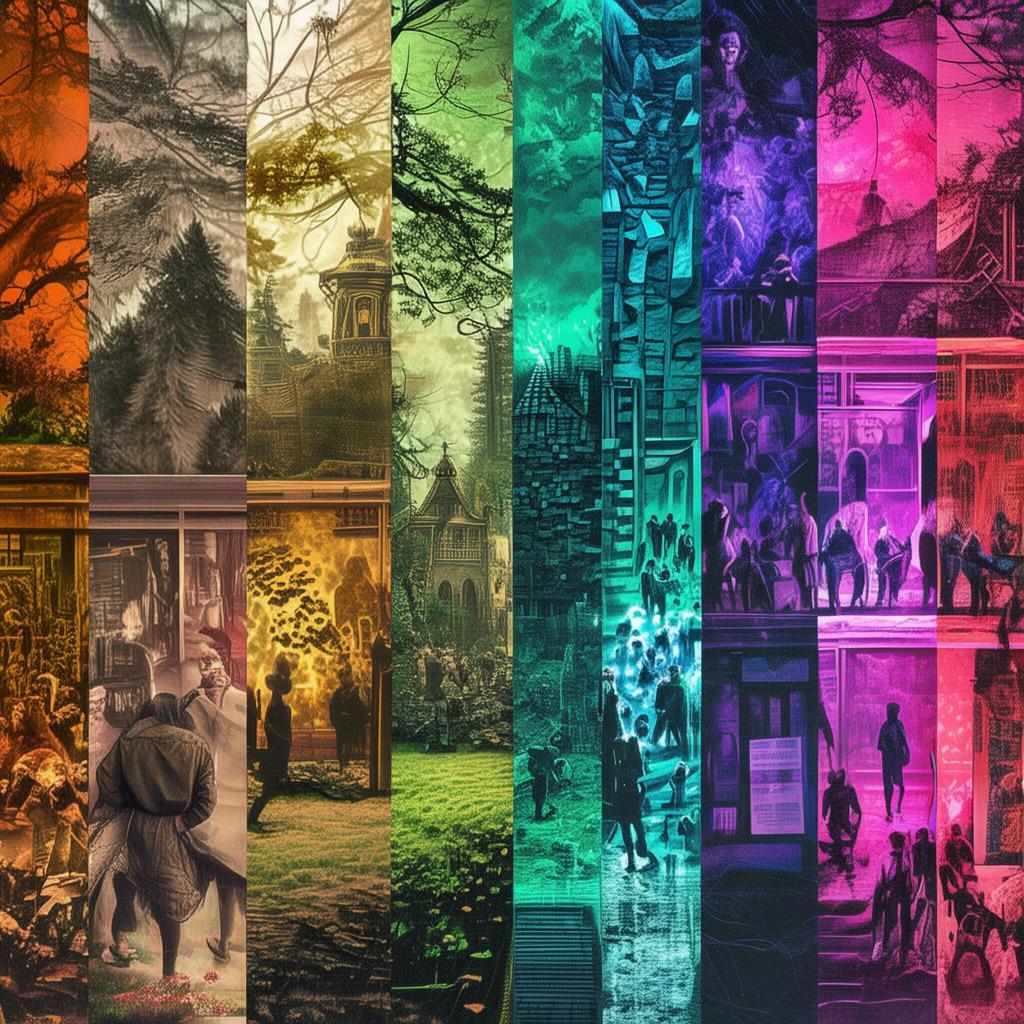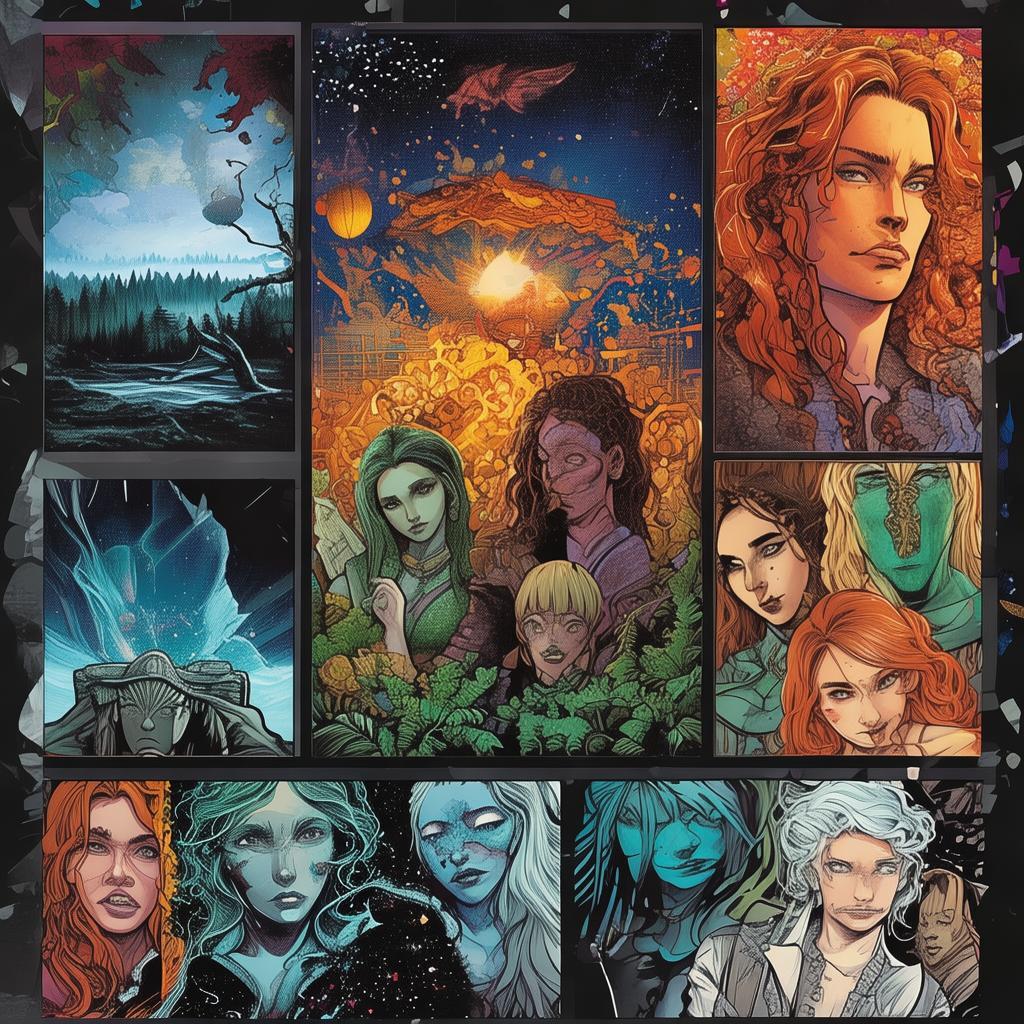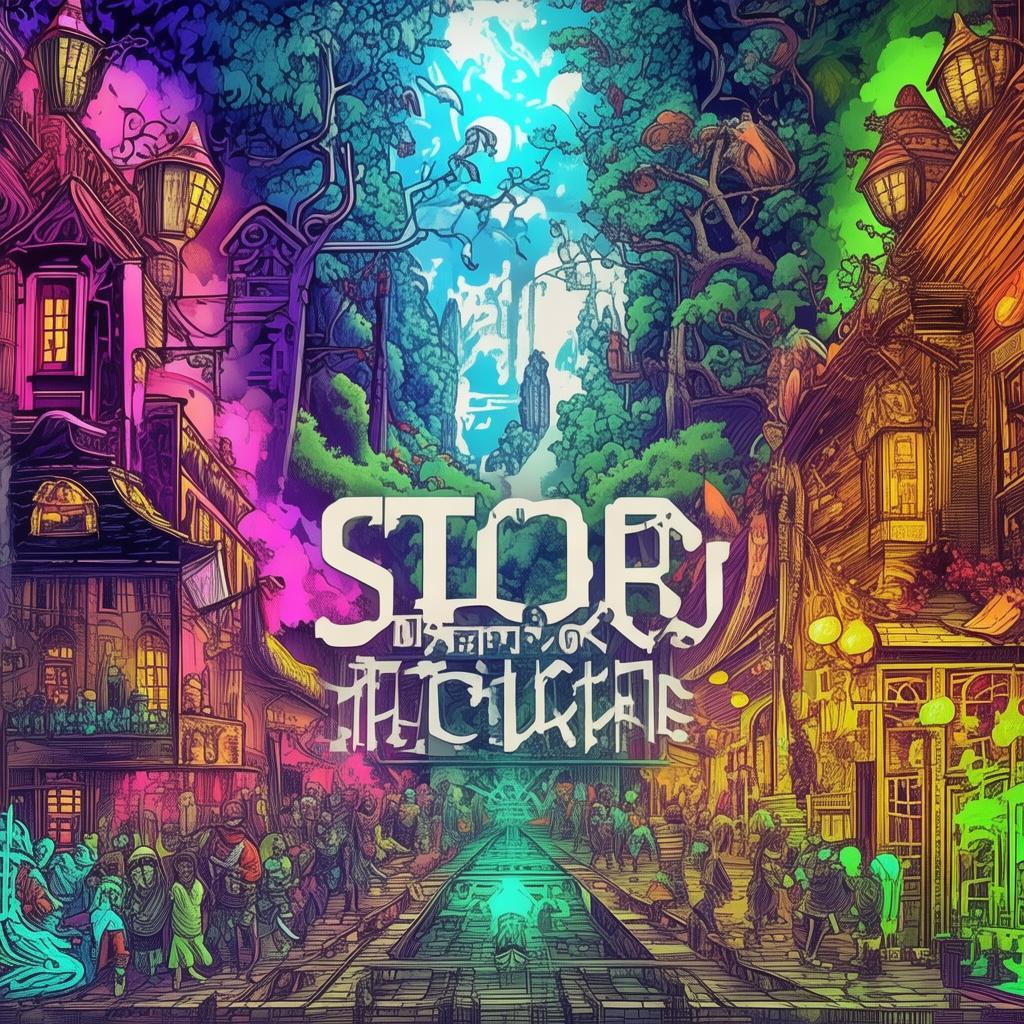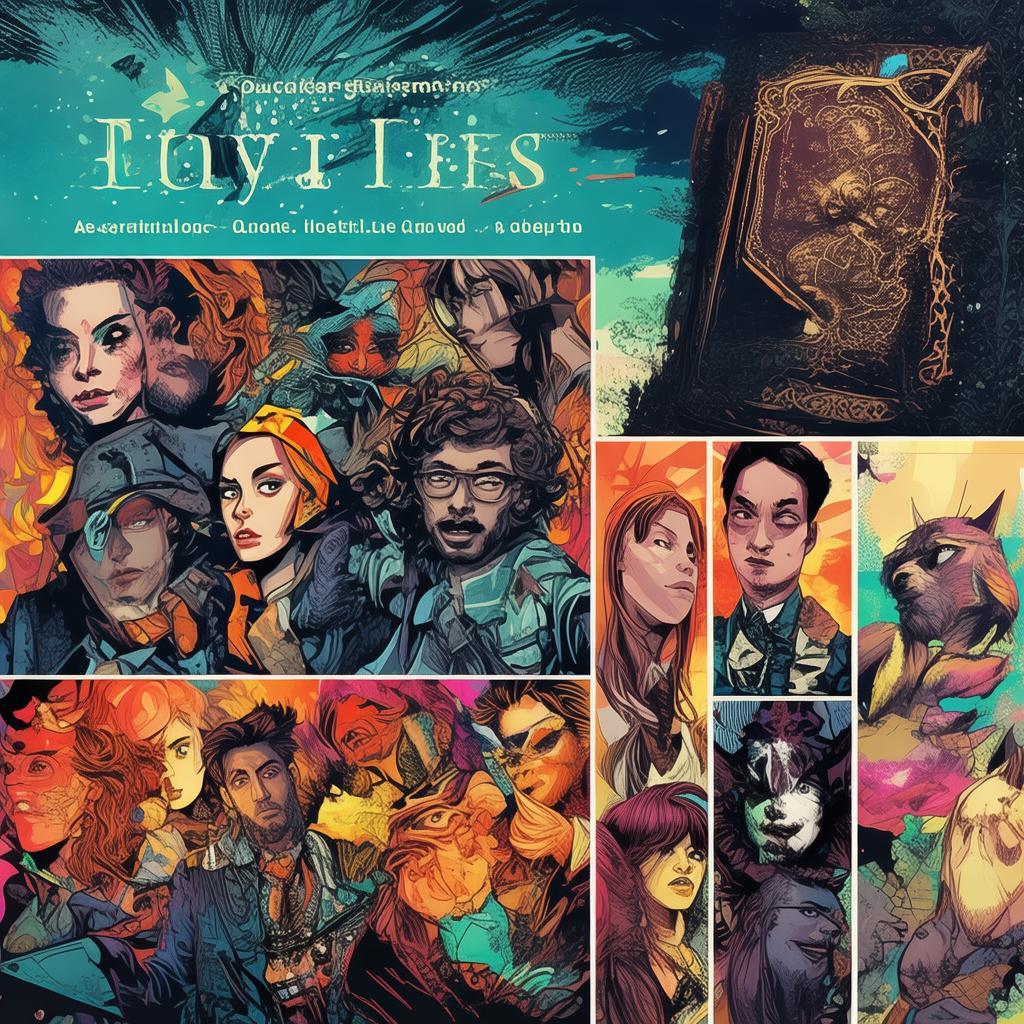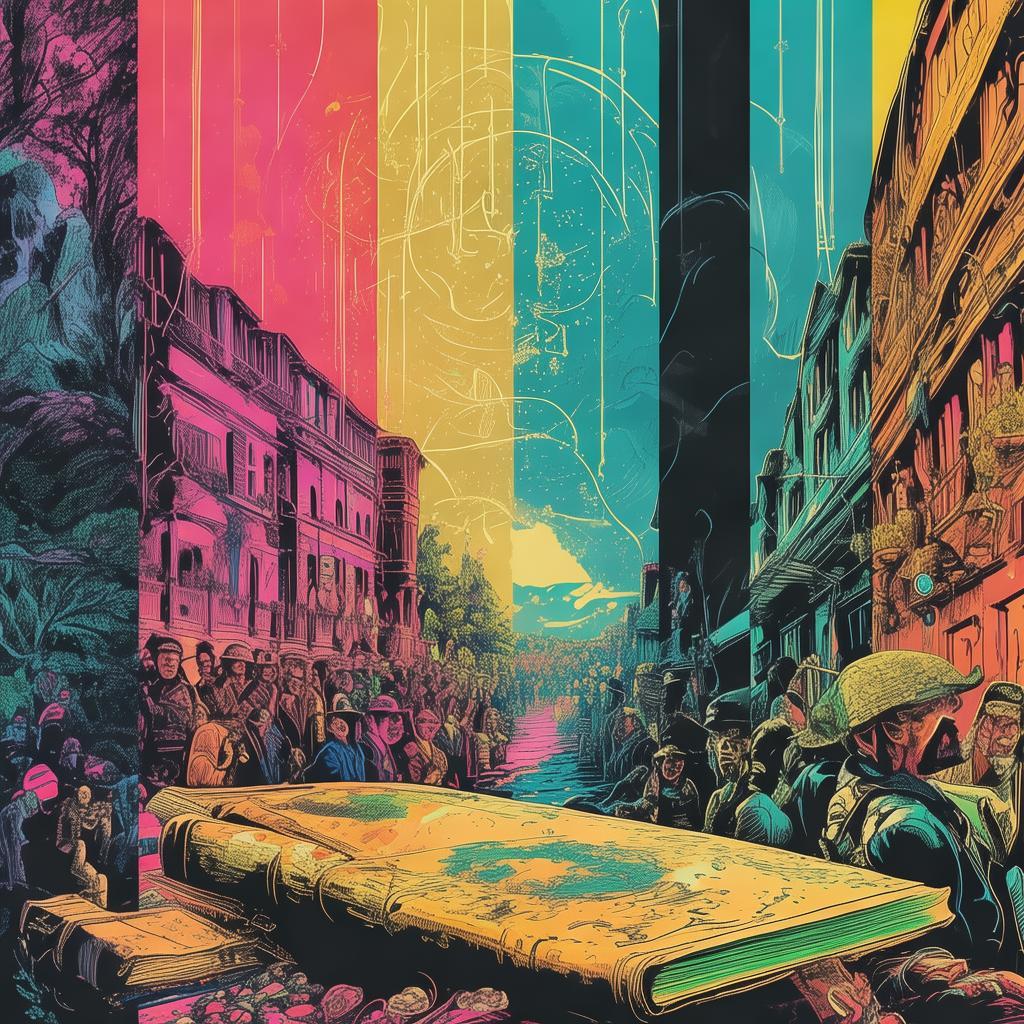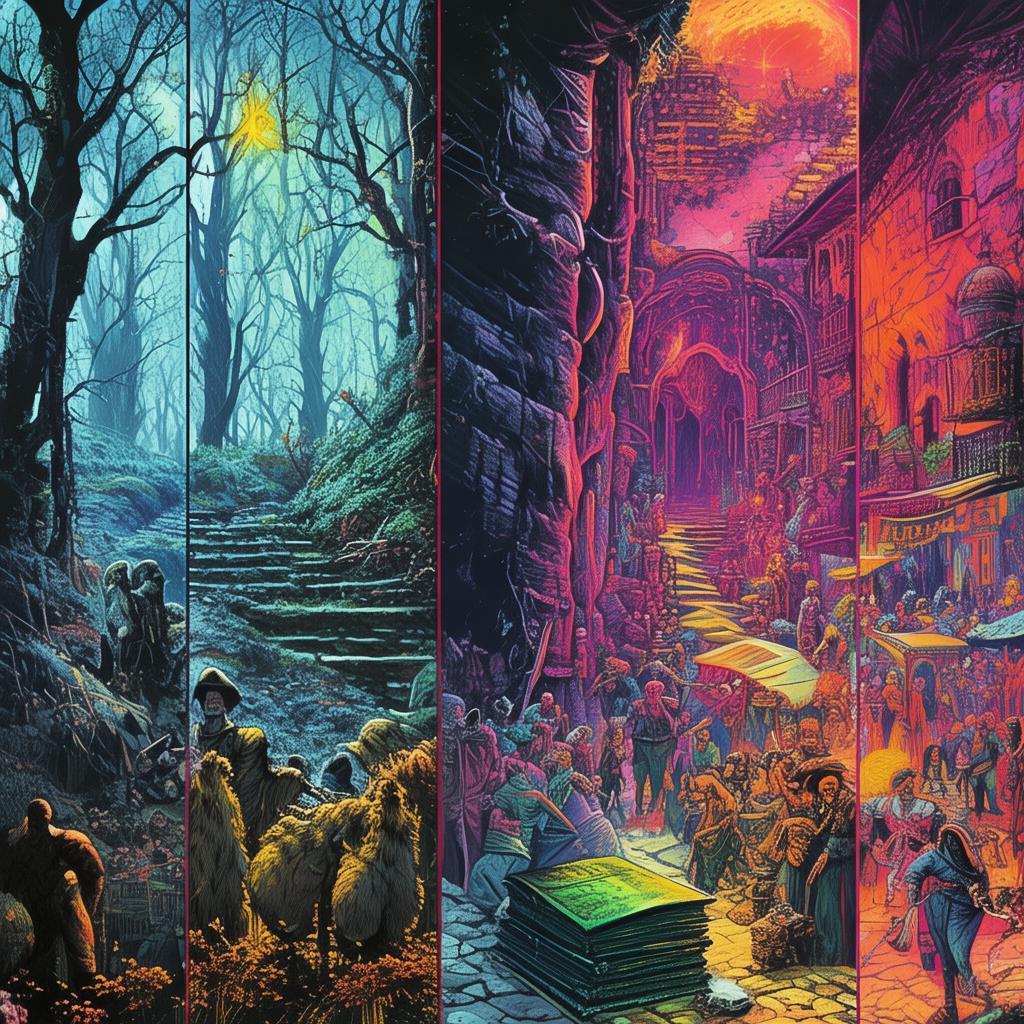Stolen Verses: A Plagiarist's Paradox
In the heart of the bustling city, amidst the cacophony of honking cars and the hum of the subway, sat Emily Carter, her fingers dancing across the keyboard. She was a struggling writer, her novels gathering dust on the shelves of indie bookstores, while her bank account was as barren as her publishing career. Yet, tonight, something different was stirring within her. She had just finished her latest novel, a story she believed was her magnum opus. The plot was intricate, the characters vivid, and the language flowed like a river of consciousness. As she hit the "save" button, a sense of elation filled her.
The next morning, Emily received an email from a literary agent, offering her a contract for her novel. Her heart raced. Finally, recognition! She couldn't contain her excitement as she called her best friend, Sarah, to share the news. Sarah, a successful author in her own right, was skeptical but supportive.
"I don't know what to say," Sarah admitted. "I've read your book, and it's... it's incredible. But it feels like it's been somewhere before."
Emily dismissed the thought, attributing it to Sarah's overactive imagination. She spent the next few days preparing for her meeting with the agent, her mind brimming with hope and anticipation.
The meeting was a whirlwind of excitement. The agent, a charming man named Mr. Thompson, praised her novel's potential. But as the conversation progressed, Emily couldn't shake the feeling that something was off. Mr. Thompson seemed to know details about her book that she couldn't have possibly shared.
"What's this about?" Emily asked, her voice tinged with suspicion.
Mr. Thompson chuckled. "I've read your book, Emily. It's a fantastic piece of work. But there's one problem."
Emily's heart sank. "What problem?"
"It's a plagiarism. Your novel is almost an exact copy of a classic by the late author, Arthur Winters. The only difference is the name of the protagonist."
Emily was stunned. She had never heard of Arthur Winters, and yet her novel was a carbon copy of his work. How was this possible? She had spent years crafting her story, and now it seemed like someone else had stolen her words.
In a fit of desperation, Emily reached out to her old college professor, Dr. Harlow, a renowned expert in literary history. Dr. Harlow was skeptical at first but agreed to look into the matter.
Weeks turned into months, and the investigation revealed a chilling truth. Emily's novel had indeed been lifted from Arthur Winters' work, but the twist was that Arthur Winters was Emily's grandfather. He had written the novel when he was just a young man, but it had never been published. The manuscript had been lost, and Emily had unknowingly rewritten it without ever having read it.

The revelation was shattering. Emily had spent her entire life believing she was a writer, but now she realized that her identity was tied to a man she had never known. She felt a strange mixture of betrayal and relief. Betrayal because someone had stolen her words, and relief because she had finally discovered the truth about her grandfather.
As Emily delved deeper into her family's past, she discovered that Arthur Winters had been a brilliant but troubled man. He had struggled with his identity, feeling like an imposter in the world of literature. He had hidden his novel, hoping that one day, someone would find it and understand his true genius.
Emily decided to honor her grandfather's legacy by publishing the novel under his name. She dedicated her life to researching and understanding his work, hoping to shed light on the man behind the words.
The novel was a success, not just in terms of sales but also in the way it resonated with readers. Emily found herself in a unique position, a bridge between her own story and her grandfather's. She became an advocate for lost and stolen works, using her experience to bring attention to the importance of originality and the power of creativity.
The paradox of stolen verses became a lesson for Emily. She learned that her identity as a writer was not defined by the words she had written but by the journey she had taken to uncover her grandfather's story. It was a story of plagiarism, yes, but also a story of redemption and the enduring power of the written word.
In the end, Emily found her voice not in the pages of her novel but in the legacy of her grandfather. She had been a plagiarist, but in uncovering the truth, she had become a creator. Her story was one of paradox, but it was also one of hope and inspiration.
✨ Original Statement ✨
All articles published on this website (including but not limited to text, images, videos, and other content) are original or authorized for reposting and are protected by relevant laws. Without the explicit written permission of this website, no individual or organization may copy, modify, repost, or use the content for commercial purposes.
If you need to quote or cooperate, please contact this site for authorization. We reserve the right to pursue legal responsibility for any unauthorized use.
Hereby declared.
